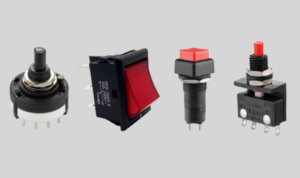
cfd trading
The world of financial trading can be a thrilling experience, especially when you come across terms like cfd trading. CFD stands for Contract for Difference, and it’s a popular way to speculate on the price movements of various assets without actually owning them. Imagine being able to trade on the fluctuations of gold prices or stock market indices without having to buy the physical gold or stocks. That’s the magic of CFD trading. But, like any form of trading, it comes with its own set of advantages and risks. Let’s explore these in a light-hearted manner, shall we?
The Allure of CFD Trading
One of the most attractive aspects of CFD trading is the ability to trade on margin. This means you only need to deposit a small percentage of the total trade value, allowing you to amplify your potential profits. It’s like getting a loan to invest, but without the interest. However, this also means that your potential losses can be magnified, which is something we’ll touch on later.
Another cool feature of CFD trading is that it allows you to go both long and short on assets. This flexibility is great because it means you can potentially profit from falling prices as well as rising ones. Whether you think gold prices are going to soar or plummet, a gold cfd gives you the opportunity to make a move.
The Versatility of Gold CFDs
Now, let’s talk about gold CFDs specifically. Gold has always been a safe-haven asset, and with a gold CFD, you can tap into this market without the hassle of storing physical gold. It’s a digital representation of gold, allowing you to trade based on its price movements. This is particularly useful in times of economic uncertainty when investors often flock to gold.
Gold CFDs also offer a high level of liquidity, meaning you can easily buy and sell without affecting the price. This is great for quick trades and for those who like to keep their options open.
The Double-Edged Sword of Leverage
While leverage is a powerful tool in CFD trading, it’s also a double-edged sword. On one hand, it can significantly boost your profits if your trade goes well. But on the other hand, if the market moves against you, those same leveraged losses can be devastating. It’s like betting big on a horse race; you could win big, but you could also lose your shirt.
This is why it’s crucial to manage your risk when trading CFDs. Setting stop-loss orders can help limit your losses, but it’s also important to understand that no strategy is foolproof. The market can be unpredictable, and sometimes, despite your best efforts, things can go south.
The Hidden Costs of Trading
When you’re trading CFDs, there are costs involved that you need to be aware of. These include spreads, which are the difference between the buy and sell prices, and overnight financing charges if you hold a position overnight. While these costs might seem small, they can add up over time, especially if you’re not managing your trades effectively.
It’s also worth noting that CFD trading does not usually qualify for the same tax treatment as traditional stock trading. This can be a significant factor for some traders, so it’s always a good idea to consult with a financial advisor to understand the implications.
The Risk of Market Volatility
The financial markets are inherently volatile, and this is especially true for assets like gold. While this can present opportunities for profit, it also means that prices can fluctuate wildly, leading to potential losses. A gold CFD can be a great way to capitalize on these movements, but it also means you need to be prepared for the ups and downs.
Staying informed and keeping an eye on market trends is essential. This can help you make better decisions about when to enter and exit trades. Remember, timing is everything in trading, and being able to read the market can give you a significant edge.
The Importance of Regulation and Broker Selection
When it comes to CFD trading, the broker you choose can make a big difference. Not all brokers are created equal, and some offer better services, lower fees, and more robust trading platforms than others. It’s important to do your research and select a broker that is regulated and has a good reputation.
Regulation is key because it provides a level of protection for traders. It ensures that the broker operates within the rules and that your funds are safe. In the world of CFD trading, a regulated broker can be the difference between a smooth trading experience and a nightmare.
Conclusion
CFD trading, with its ability to trade on margin and its flexibility, offers exciting opportunities for traders. Gold CFDs, in particular, can be a great way to tap into the gold market without the need for physical ownership. However, it’s important to remember that with these advantages come risks. Leverage can amplify both profits and losses, and market volatility can lead to unpredictable price movements. Understanding the costs, staying informed, and choosing a regulated broker are all crucial steps in navigating the world of CFD trading successfully. So, whether you’re new to CFD trading or a seasoned trader, always approach with caution and a well-thought-out strategy. After all, in trading, as in life, it’s not just about taking risks, but about managing them wisely.








